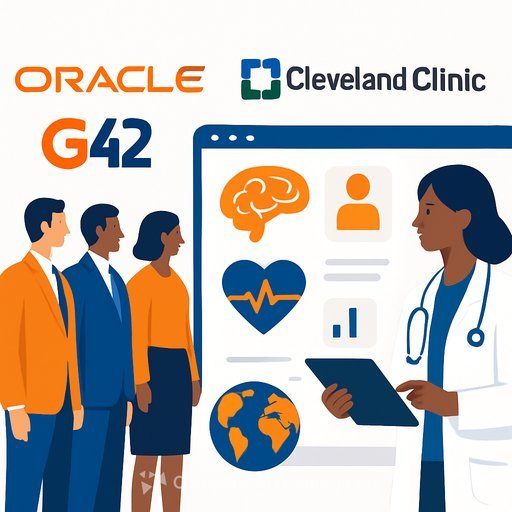University Hospitals to deploy Hippocratic AI voice agents for patient support across the system
University Hospitals is working with Hippocratic AI to embed conversational, voice-based agents into clinical workflows and patient engagement. The focus: non-diagnostic tasks that keep patients informed, adherent and connected between visits.
Early pilots focused on pharmacy-related patient needs and delivered encouraging results, according to both organizations. Based on those outcomes, the collaboration is expanding into preventative screening calls, appointment support and patient education.
"Our agents are designed to be empathetic, safe and effective extensions of the care team delivering personalized support at scale, when and where patients need it most," said Munjal Shah, CEO and cofounder of Hippocratic AI. Dr. Paul Hinchey, COO at University Hospitals, added, "Together, we are reaching patients between visits, closing communication gaps and helping clinicians spend more time practicing at the top of their license."
What this means for healthcare operations
- Offload routine, non-diagnostic outreach (refills, reminders, preparation instructions) to always-available voice agents.
- Standardize scripts and education while keeping a warm, empathetic tone.
- Extend coverage beyond clinic hours and reduce phone tag that strains call centers.
- Free clinicians and staff to focus on higher-acuity care and complex coordination.
Initial and planned use cases
- Pharmacy support: refill guidance, pickup coordination, benefits checks.
- Preventative screening calls: outreach, scheduling assistance, follow-ups.
- Patient education: plain-language explanations and preparation steps.
- Appointment support: reminders, rescheduling, transportation prompts.
Safety, security and risk management
Hippocratic AI reports HITRUST e1 Certification for its agentic platform, an assessment covering 44 foundational security controls. For leaders evaluating third-party agents, this matters for baseline assurances around access controls, logging and risk governance. Learn more about HITRUST e1 here: HITRUST e1 Assessment.
The company emphasizes a safety-focused approach and non-diagnostic scope, reducing clinical risk while still addressing high-volume communication gaps.
The larger trend
In July, KPMG announced a collaboration with Hippocratic AI to help address workforce shortages through agent-based support. Hippocratic AI also participated in the Health Tech Ecosystem within the U.S. Centers for Medicare & Medicaid Services' digital transformation initiative. For context on CMS' innovation work, see CMS.
The company's Polaris Constellation architecture supports agents across workflows such as patient intake and care management follow-ups. International expansion is underway through a partnership with EUCALIA, introducing a Japanese-language healthcare agent for non-diagnostic patient-facing tasks.
On the financing and product side, Hippocratic AI raised $141 million in a Series B round in January, following a prior $53 million Series A. It also launched a Healthcare AI Agent App Store that lets clinicians co-develop agents for condition-specific use cases; creation reportedly takes under 30 minutes with safety testing by both the creator and Hippocratic AI staff.
How to pilot this model in your organization
- Start with one high-volume, low-risk workflow (e.g., refills, screenings) and define clear success metrics: reach rate, adherence, no-show reduction, staff time saved.
- Establish governance: non-diagnostic scope, escalation paths to humans, scripting review by clinical leaders and patient experience teams.
- Integrate with scheduling, EHR messaging and call center systems to avoid duplicative outreach.
- Test with a small cohort, measure outcomes weekly, then scale by service line.
- Track patient sentiment and equity metrics to ensure access and comprehension across populations.
Key takeaways for healthcare leaders
- Voice agents are ready for targeted, non-diagnostic work that often clogs phone lines and inboxes.
- Early pharmacy results suggest clear operating gains; screening and education are logical next steps.
- Security baselines like HITRUST e1 and tight escalation protocols are essential for trust.
- Give clinicians a direct role in scripting and oversight to keep communication clinically accurate and humane.
Skill up your team
If you're building internal fluency around AI agents, practical training helps speed safe adoption. Explore role-focused options here: AI courses by job.
Your membership also unlocks:






